1. No Loud Music After 10 PM
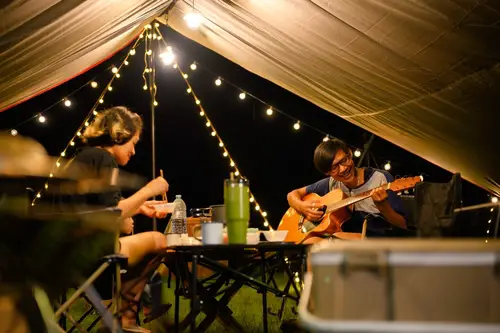
Campgrounds are notorious for being peaceful retreats, so blasting music late at night will definitely get attention. Even if you think it’s just a little hum, neighbors can hear it clearly through the quiet forest. Rangers enforce this rule to preserve the calm atmosphere everyone paid for. Violations often result in warnings or, in repeated cases, being asked to leave.
Respecting quiet hours isn’t just about being polite—it’s about safety too. Wildlife can be stressed by loud noises, and children often need quiet to sleep after a long day of hiking. Even small speakers can carry surprisingly far in the still night air. Keeping the volume low ensures everyone can enjoy the campground without conflict.
2. Dogs Must Be Leashed

Many campers think it’s fine to let their dog roam free, but leash laws are strict for a reason. Unleashed dogs can disturb wildlife, get lost, or even bite other campers. Campground staff enforce this rule because an off-leash dog creates liability issues and safety risks. Fines or eviction aren’t uncommon if a dog is seen wandering.
It’s not just about rules—it’s about keeping your pet safe too. A campsite might have predators or aggressive wildlife your dog can’t handle. Plus, other campers might have allergies or fears that could escalate into conflicts. A leash keeps everyone, including your furry friend, protected.
3. No Fireworks

Fireworks seem harmless, but in a forested area, they are extremely dangerous. Even small sparklers can start wildfires if they land on dry leaves or pine needles. Campgrounds enforce this rule to protect everyone from fire hazards and to comply with local fire bans. Breaking it could lead to immediate removal and potential legal trouble.
Fireworks also disrupt the quiet, natural experience most people come for. Wildlife can be terrified by sudden loud explosions, and pets often panic. A single spark is all it takes to ruin a weekend for dozens of campers. It’s better to save your fireworks for a controlled, safe location.
4. No Picking Plants or Flowers

It may feel harmless to take a flower or fern as a souvenir, but campgrounds are strict about preserving natural habitats. Removing plants can harm the ecosystem, especially if it’s a rare species. Rangers enforce this to maintain the park’s beauty and biodiversity for future visitors. Repeat offenders can face fines or citations.
The rule also teaches respect for nature. Plants are part of the campground’s ecosystem, supporting insects, birds, and other wildlife. Damaging even small areas can have ripple effects throughout the environment. Enjoy the scenery with your eyes, not your hands.
5. Trash Must Be Bagged and Contained
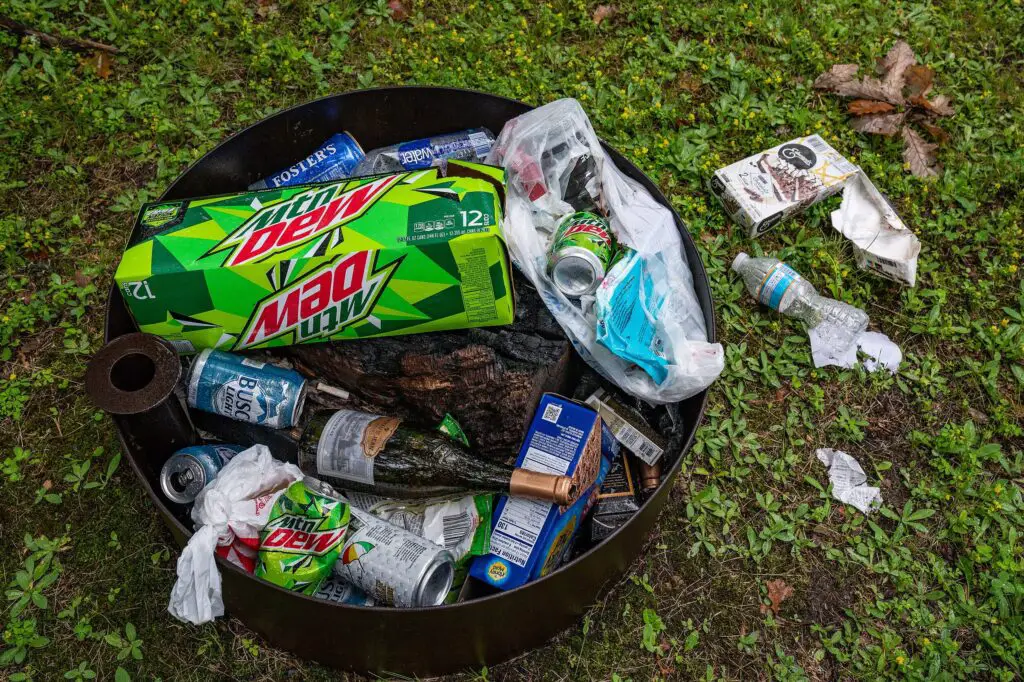
Leaving garbage loose is one of the most enforceable rules at any campground. Animals like raccoons or bears can easily tear open trash bags, creating dangerous situations. Staff enforce proper trash disposal to prevent these encounters and maintain hygiene. Campsites with repeated violations often have trash fines.
Even if you’re just “forgetting,” it matters. Loose trash spreads quickly and attracts pests, which can become a hazard to other campers. Bagging your waste ensures no one has to deal with unpleasant cleanups. It’s a small effort with a big payoff for safety and cleanliness.
6. Limit Campfires to Designated Pits
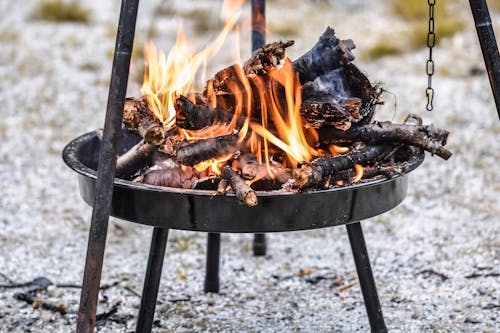
Many people assume any open area is fair game for a fire, but campgrounds have strict rules. Designated fire pits are built to contain flames and prevent wildfires. Rangers patrol sites to make sure fires aren’t built outside approved areas. Ignoring this rule could result in being asked to put the fire out—or leave entirely.
Using the pit correctly also helps preserve the land. Fires outside pits can scar the earth and make the site less enjoyable for future campers. Plus, contained fires burn safer and hotter, reducing smoke and sparks. Stick to the pit and keep the experience safe for everyone.
7. Keep Vehicles Off the Grass
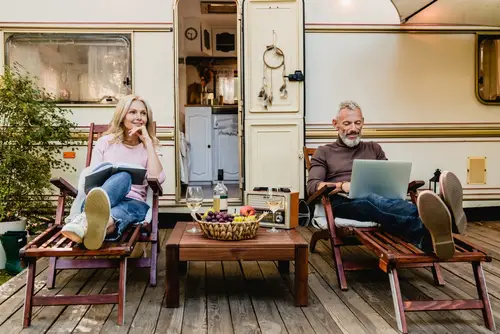
It might seem minor to drive a few feet onto the grass to park, but campgrounds enforce this rule aggressively. Grass and soil can get compacted, harming roots and drainage. Some parks even have delicate ecosystems that get damaged easily. Violating it may earn you a fine or a warning from staff.
This rule also preserves the aesthetic and functional layout of the campground. Campgrounds are designed so everyone has space and access. Damaged turf can lead to muddy, unusable spots for future visitors. Staying on designated roads helps the whole community enjoy the site.
8. Quiet in Shared Bathrooms
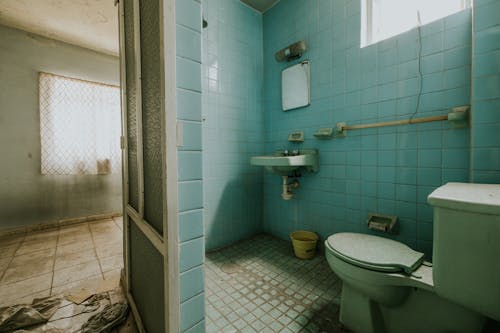
Campgrounds often have shared bathroom facilities, and being noisy isn’t allowed. This might sound petty, but staff enforce it because bathrooms are small, echoey, and shared. Screaming, shouting, or playing loud music can make an unpleasant situation worse. Repeated complaints can result in management intervention.
Keeping bathroom noise down respects privacy and comfort. People are coming from all over to enjoy a quiet nature experience. A little patience and low voices go a long way in maintaining harmony. It also helps avoid awkward conflicts over space.
9. No Reserved Seating at Shared Picnic Tables
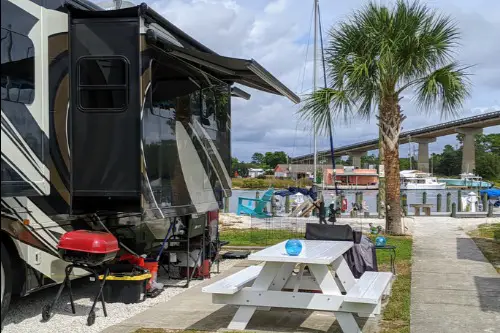
Some campers think leaving a chair or cooler to “claim” a table is fine, but many parks prohibit it. Shared picnic tables are first-come, first-served, and staff enforce this to keep things fair. Ignoring this can lead to arguments with other campers or staff intervention. This rule ensures everyone has access to communal spaces.
It also encourages flexibility and patience. Reserving a spot with objects can block access and frustrate others trying to enjoy a meal. Campgrounds are meant to be communal, not territorial. Let others enjoy the space, and the system works better for everyone.
10. Limit Tent Spacing

Campgrounds often have rules about how far apart tents must be set up. You might think a foot or two closer is fine, but spacing matters for safety. Fires, privacy, and emergency access all rely on proper spacing. Rangers can ask you to move your tent if it’s too close to neighbors.
It also helps prevent conflicts between campers. Crowding tents can make noise, odor, and light issues worse. Everyone gets a fair share of the campsite’s space. Following the spacing rules makes the campground more comfortable and safe for everyone.
11. No Alcohol in Certain Areas

Some campgrounds restrict alcohol to designated areas, and staff enforce this strictly. Public drinking can lead to accidents, noise complaints, or interactions with wildlife. Breaking the rule could get you fined or even removed from the park. The policy protects everyone’s safety and enjoyment.
These rules also prevent conflicts between families and other campers. Not everyone is comfortable around alcohol, especially in family-friendly or quiet areas. Following the designated zones keeps the peace. Enjoy responsibly and avoid confrontations.
12. Use of Lanterns Only in Tents or Fire Pits
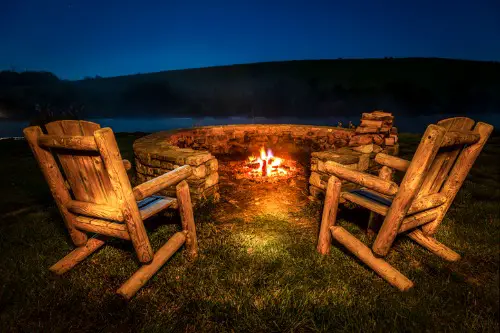
Campgrounds may prohibit open flames or lanterns outside tents and designated areas. Even small lanterns can start a fire if tipped over or placed near dry leaves. Staff enforce this rule to reduce fire hazards and prevent accidents. Violators may be asked to remove the lantern or leave the campground.
It’s also about protecting wildlife and other campers. A bright, roaming lantern can disturb nocturnal animals or interrupt someone’s sleep. Using them safely keeps the nighttime experience pleasant for all. Following this rule is a small effort with high safety rewards.
13. Pack Out All Food
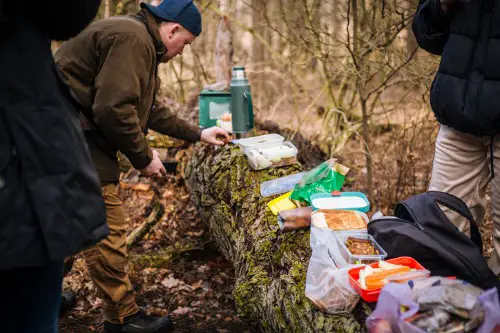
Leaving food unattended is strictly forbidden at many campsites. Animals, especially bears, can be attracted to even small crumbs. Rangers enforce this rule to prevent dangerous wildlife encounters. Campers who leave food can face fines or be removed.
Packing out food also teaches responsible camping habits. Wildlife should remain wild, and humans should not create dependency or hazards. Proper storage and disposal prevent accidents and injuries. Bringing back everything you brought ensures the forest stays safe for everyone.
This post 13 Campground Rules That Sound Petty but Get Strictly Enforced was first published on Greenhouse Black.
